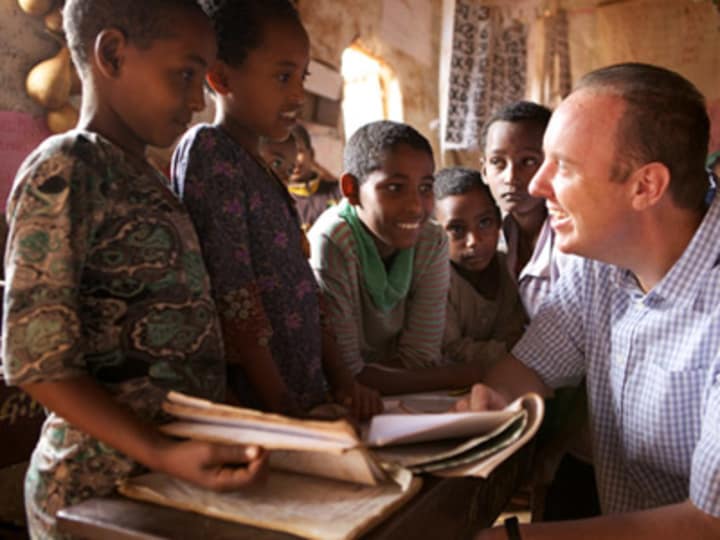
The successor framework for the Millennium Development Goals provides a critical opportunity to shape how the international community defines and “does” development.
At VSO, we know that volunteering is a powerful way to put people at the heart of this change. That is why we will be passionately making the case at this year’s European Development Days conference about the impact that civic participation through volunteering can have on poverty reduction beyond 2015.
Volunteering has a unique and significant contribution to make in building sustainable capacity and bringing about social change. People are the best agents of change, and those living in poverty have enormous unrecognized potential to address and solve the problems of poverty.
Whether community volunteers, or international volunteers, all contribute skills, knowledge and a commitment to making a lasting difference. What is distinctive is the way in which volunteers build strong collaborative relationships over time, working within the community to build shared solutions which reflect local priorities that are led and owned by the community. This way of working builds trust, cohesion and social capital, all of which are essential in achieving inclusive and sustainable change.
Volunteering against global inequality
At present, the MDGs embody a particular model of development based largely on the transfer of aid and expertise from the global North to the global South — and do very little to tackle the power imbalances that lie at the heart of global inequality and marginalization.
Volunteering, however, has the potential to contribute to rebalancing this injustice, so that democratic ownership and influence over development agendas is driven by the needs and demands of the global South.
As an international development organization that brings people together to fight poverty through volunteering, VSO is calling for an approach that treats people as active partners in development rather than passive beneficiaries of aid. The post-2015 framework will be stronger and more legitimate if it recognizes this. We cannot overlook the role that volunteering has to play if we are serious about making development more inclusive, people-centered and sustainable.
Just as development policy and practice is changing, so too is the face of volunteering in the 21st century.
Our vision is of a framework that actually strengthens national development strategies rather than competing for resources, thereby undermining local interventions. In working toward this goal, VSO is rising to the challenge by supporting South-South, diaspora and youth volunteering programs that bring about sustainable solutions through the exchange of skills and knowledge.
Contributing to sustainable local solutions
Recently, I visited Ethiopia to see our volunteer work with national and local partners in the field of education and health for myself.
We are supporting the National Youth Volunteering Committee in working towards legislation to embed new programs in youth volunteering. VSO is ambitious to build on this initiative and to see this national program extended to adults too.
Ethiopia has already met the MDG goal of reducing child mortality two years ahead of the deadline, but much more needs to done as the country still has one of the highest neonatal mortality rates in the world. I believe that volunteering has a part to play in contributing to sustainable local solutions which would see more children surviving.
There are many examples of successful locally-owned solutions to development. For instance, in neighboring Kenya, national VSO volunteer and teacher Norbert Bonyi has been supporting class room teaching at a school in Kisumu and works on projects to strengthen the community. One of these involves the creation of a kitchen garden where the students grow vegetables and grains. Selling the produce to the local community means that the students are able to meet the cost of their education fees from the proceeds. Norbert sums up his approach to development perfectly: “A small deed is greater than a big intention.”
From young people to professional volunteers, local to international, volunteers are contributing daily to achieving development outcomes.
And we must not miss this critical window of opportunity to call for a post-2015 framework of people-centered development so that pioneering volunteers like Norbert are able to have a voice and to influence the decisions which affect their communities.
Marg Mayne is a confirmed speaker at the European Development Days 2013 to be held on Nov. 26-27 in Brussels. Live web-streaming of 20 high-level sessions will be available on the EDD13 website during the two days of the forum. For in-depth analysis and exclusive interviews with decision makers and thought leaders, stay tuned to Devex, an official EDD13 media partner.




